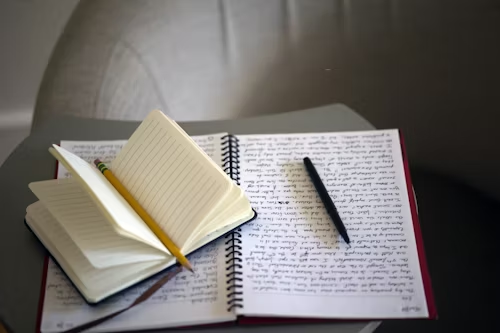When ADHD Affects a Relationship: Understanding, Communication, and Connection

Description
When ADHD Affects a Relationship: Understanding, Communication, and Connection
When one partner lives with ADHD, the relationship can feel like a constant push and pull with moments of deep connection and fun balanced with frustration, miscommunication, or exhaustion. Many couples find themselves stuck in patterns they don’t fully understand until they realize that ADHD isn’t just an attention issue, it’s a difference in how the brain processes information, emotion, and impulse.
This post explores how ADHD symptoms can affect relationships, communication, parenting, and intimacy — and how couples can move from conflict toward connection.
Understanding ADHD in Adults
ADHD (Attention-Deficit/Hyperactivity Disorder) in adults often looks different than in children. Many adults have learned to “mask” or compensate, so the symptoms show up more subtly in daily life. Common signs include:
• Inattention: Forgetting tasks, misplacing items, zoning out mid-conversation, or starting multiple projects without finishing.
• Impulsivity: Saying things without thinking, interrupting, overspending, or making quick decisions that can cause tension.
• Emotional dysregulation: Feeling emotions more intensely - frustration, excitement, rejection and struggling to calm down once triggered.
• Time blindness: Losing track of time, underestimating how long tasks take, or running late often.
• Executive function challenges: Difficulty planning, organizing, or following through on responsibilities.
For many partners these behaviors can feel personal as if their ADHD partner isn’t listening, doesn’t care, or isn’t pulling their weight. But ADHD is neurological, not intentional. Understanding that distinction is the first step toward compassion and change.
How ADHD Can Affect Relationships
1. Communication Breakdowns
ADHD can make it hard to stay focused during conversations. The partner with ADHD may seem distracted or interrupt often while the non-ADHD partner may feel dismissed or unheard. Over time, this can create resentment or distance.
2. Uneven Responsibility
Many couples describe an imbalance where the non-ADHD partner becomes the “manager” by keeping track of bills, appointments, and routines. This dynamic can breed frustration for both sides: one feels overwhelmed, the other feels micromanaged.
3. Emotional Reactivity
Small conflicts can escalate quickly. The ADHD partner might experience intense emotions or defensiveness, while the non-ADHD partner may withdraw to avoid confrontation can create a pursuer-distancer cycle.
4. Parenting Challenges
When ADHD is part of the family dynamic, parenting can become complicated. Structure, follow-through, and patience are essential for kids but also difficult for adults with ADHD. Miscommunication about discipline or routines can add stress.
5. Intimacy and Connection
ADHD can impact sexual and emotional intimacy in subtle ways. Impulsivity might make a relationship exciting early on but can also lead to inconsistency or disconnection later. Emotional sensitivity or rejection fears can make vulnerability difficult.
Strategies for Building Connection and Reducing Conflict
While ADHD can challenge a relationship, it doesn’t define its success. With insight, structure, and empathy, couples can create a strong and balanced partnership.
1. Learn About ADHD Together
Education reduces blame. Understanding ADHD as a shared challenge rather than one person’s flaw can shift the dynamic from frustration to teamwork. Reading books or attending therapy together can help build empathy.
2. Create Clear Communication Habits
• Make eye contact and reduce distractions during conversations.
• Use short, direct language and avoid long lectures or multitasking while talking.
• Agree on when to discuss sensitive issues (e.g., not right before bed or during conflict).
3. Externalize the Problem
Instead of “you always forget,” try “ADHD makes it hard to remember. How can we set up reminders that help?”
This small shift reduces shame and opens the door to problem solving.
4. Use Tools and Structure
Calendars, shared apps, and visual reminders help compensate for executive function challenges. The goal isn’t perfection! The goal is predictability and teamwork.
5. Practice Emotional Regulation
Both partners can benefit from grounding strategies like deep breathing, brief breaks, or naming emotions before reacting. ADHD brains often react fast; slowing down can change everything.
6. Reconnect Through Positivity
ADHD can make relationships feel task-heavy and tense. Make space for laughter, appreciation, and shared joy. Express gratitude for what your partner does well such as creativity, humor, energy, or passion.
7. Consider Couples Therapy
Working with a therapist familiar with ADHD can help each partner feel understood. Therapy provides tools for communication, boundaries, and rebuilding trust.
Final Thoughts
ADHD doesn’t doom a relationship but it does require awareness and adaptation. With empathy, structure, and shared effort, couples can transform misunderstanding into understanding, chaos into balance, and frustration into teamwork.
Relationships grow stronger when both partners feel seen and supported — not in spite of ADHD, but with it.

